Diabetes Research and Innovation in the Making

Celebrating the 100th Anniversary of the Discovery of Insulin: Diabetes Research and Innovation in the Making
Diabetes significantly impacts Canadians’ quality of life, including our mental and physical health. Since Banting and Best’s discovery of insulin in Toronto in 1921, the scope of diabetes research in Canada has been broad, and the numerous studies have been both varied and unique. There have been huge strides and key advances in mapping and understanding the physiology, biochemistry and genetics of diabetes, as well as developments in the prevention, treatment and management of the disease. Key goals remain, most importantly, to improve the quality of life of people living with diabetes and to find a cure.
This Parliamentary Health Research Caucus Virtual Reception will celebrate Canada’s world-class research and innovative models of health care delivery to our country’s rich and ethno-culturally diverse population. We truly have so much to celebrate!
Co-hosted By:
Diabetes Canada is the registered national charitable organization that is making the invisible epidemic of diabetes visible and urgent. Diabetes Canada partners with Canadians to End Diabetes through:
- Resources for health-care professionals on best practices to care for people with diabetes;
- Advocacy to governments, schools and workplaces; and
- Funding world-leading Canadian research to improve treatments and find a cure.
JDRF is the leading global organization focused on type 1 diabetes (T1D) research. Driven by passionate, grassroots volunteers connected to children, adolescents, and adults with this disease, JDRF is the largest charitable supporter of T1D research. The goal of JDRF is to improve the lives of every person affected by T1D by accelerating progress on the most promising opportunities for curing, better treating, and preventing the disease. JDRF collaborates with a wide spectrum of partners who share this goal.
PANEL 1
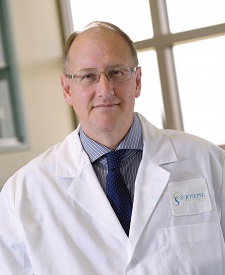 David J. Hill, PhD
David J. Hill, PhD
Scientific Director, Lawson Health Research Institute
Professor, Departments of Medicine, Physiology and Pharmacology, Western University
Dr. David Hill is the Scientific Director of the Lawson Health Research Institute, one of Canada’s largest hospital-based research institutes. He holds the Lawson Professorship in Diabetes Research and is a Professor in the Departments of Medicine, Physiology and Pharmacology, at Western University.
Dr. Hill has published over 200 scientific papers and maintains an active program in diabetes research and stem cell biology. His research centres on the generation of new insulin-producing beta cells in the pancreas as a strategy for the reversal of diabetes as well as the linkage of low birth weight to an increased risk of diabetes in later life and how environmental factors, such as nutrition, might trigger or protect against diabetes.
 Rachel Burns, PhD
Rachel Burns, PhD
Assistant Professor, Department of Psychology
Carleton University
Dr. Rachel Burns is an Assistant Professor in the Department of Psychology at Carleton University. As a health psychologist, Dr. Burns examines psychosocial influences on health and wellbeing. Much of her research examines the wellbeing of adults with diabetes, including the links between mental and physical health, spousal influences on health outcomes, and positive psychological wellbeing.
 David Campbell, MD, PhD
David Campbell, MD, PhD
Assistant Professor, Departments of Medicine, Community Health Sciences & Cardiac Sciences
Cumming School of Medicine, University of Calgary
Dr. David Campbell is an assistant professor and endocrinologist, with clinical interests in cardiometabolic endocrinology. His research focuses on equity and access to care. Specifically, he uses mixed methods research to study novel ways to deliver diabetes and chronic disease care to populations that are currently underserved by our healthcare system, including those that face financial barriers, food insecurity, and homelessness.
 Elizabeth Cummings, MD, FRCPC
Elizabeth Cummings, MD, FRCPC
Division Head Pediatric Endocrinology, IWK Health Centre
Professor, Pediatrics, Dalhousie University
Dr. Elizabeth Cummings is a pediatric endocrinologist, Professor of Pediatrics, and medical advisor to the Diabetes Care Program of NS at IWK Health/Dalhousie University. Dr. Cummings participates in international clinical trials studying strategies for type 1 diabetes prevention. She currently studies trends of incidence of types 1 and 2 diabetes in NS youth. She is involved knowledge translation and advocacy with the Canadian Paediatric Society’s Diabetes@School initiative.
 Jennifer Estall, PhD
Jennifer Estall, PhD
Associate Research Professor, Laboratory Director, IRCM
Associate Professor, Department of Medicine, University of Montreal
Adjunct Professor, Experimental Medicine/Anatomy & Cell Biology, McGill University
Dr. Jennifer Estall received her PhD from the University of Toronto, followed by post-doctoral training at Harvard Medical School. She is an Associate Research Professor at the Montreal Clinical Research Institute (IRCM). Her research focuses on molecular changes involved in the pathogenesis of diabetes and related metabolic illness, and she has a particular interest in organ cross-talk. Her projects involve fundamental and pre-clinical studies on how nutrient metabolism controls insulin secretion and how mitochondrial dysfunction impacts diabetes development.
 Stewart B. Harris CM, MD, MPH, FCFP, FACPM
Stewart B. Harris CM, MD, MPH, FCFP, FACPM
Diabetes Canada Chair in Diabetes Management
Ian McWhinney Chair of Family Medicine Studies, Schulich School of Medicine and Dentistry, Western University
Scientist, Lawson Health Research Institute
Dr. Stewart Harris holds the Diabetes Canada Chair in Diabetes Management and the McWhinney Chair of Family Medicine Studies. His research career has focused on identifying and closing the care gap for Canadians with diabetes. His pioneering work carved new understandings of the pathophysiology and epidemiology of diabetes in Canada’s Indigenous Peoples. His research has also had widespread impacts on therapeutic development and management in primary care. In 2015, he was appointed to the Order of Canada for his contributions to developing diabetes prevention strategies in Indigenous communities and other vulnerable populations. Dr. Harris’s internationally recognized career reflects a passionate commitment to medicine, science, and mentorship.
 Francis Lynn, PhD
Francis Lynn, PhD
Associate Professor, Department of Surgery, University of British Columbia
Dr. Francis Lynn’s research interest is in understanding the mechanisms that regulate the formation of islet β-cells (insulin producing cells) from pancreatic stem or progenitor cells during solid organ formation in order to ameliorate and eventually cure diabetes.
PANEL 2
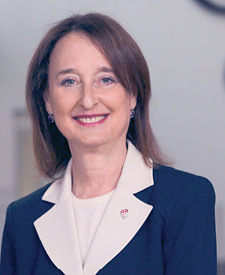 Rose Goldstein, MD, FRCPC
Rose Goldstein, MD, FRCPC
Professor of Medicine, McGill University
Chair of Research Canada
Dr. Rose Goldstein is a professor in the Faculty of Medicine and the former Vice-Principal of Research and Innovation at McGill University from 2010 to 2017. In 2017, Dr. Goldstein completed the Directors Education Program (DEP) from the Institute of Corporate Directors (ICD). Dr. Goldstein earned her Bachelor of Science and Medical degrees from McGill and completed her clinical training at the Universities of Toronto, Ottawa, and Texas. Dr. Goldstein became Chair of Research Canada in June 2020.
- Shivani Goyal
- Ahmad Haidar
- Timothy Kieffer
- Lorraine Lipscombe
- Constantin Polychronakos
- Ravi Retnakaran
 Shivani Goyal, PhD
Shivani Goyal, PhD
Associate Director, Centre for Global eHealth Innovation, University Health Network (Previous)
Assistant Professor, IHPME, University of Toronto, and Co-Investigator with Diabetes Action Canada (Previous)
Digital Innovation Manager, Commercial Excellence, Abbott Laboratories Co.
Dr. Shivani Goyal is the co-lead of Connect1d, Canada’s first digital registry for people living with type 1 diabetes (T1D). Connect1d was codesigned with both people living with T1D and the research community from across Canada. The platform aims to connect those living with T1D to innovative treatments, drive participation in research studies, and through this engagement generate rich population-level data on T1D. Connect1d aims to advance patient-oriented research, policy, and clinical care.
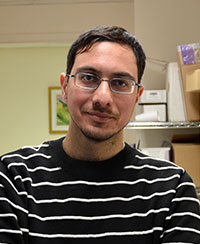 Ahmad Haidar, MD
Ahmad Haidar, MD
Assistant Professor, Department of Biomedical Engineering,
McGill University
Dr. Ahmad Haidar leads an interdisciplinary research program that applies feedback control theory and mathematical modelling to diabetes physiological and clinical problems. Since 2011, Dr. Haidar’s research focus has been to develop and clinically test novel artificial pancreas systems (automated hormonal delivery systems) for type 1 diabetes.
 Timothy Kieffer PhD, FCAHS
Timothy Kieffer PhD, FCAHS
Professor, Cellular & Physiological Sciences and Surgery, University of British Columbia
Vancouver Coastal Health Research Institute
Dr. Timothy Kieffer’s laboratory is focused on the development of novel gene and cell therapy approaches to treat diabetes. He has co-authored >175 publications on these topics in addition to several book chapters and patents. He has mentored >40 graduate students and postdoctoral fellows in addition to numerous undergraduates and is an active teacher. In 2010, he received the CDA Young Scientist Award and, in 2018, was elected as a Fellow of the Canadian Academy of Health Sciences.
 Lorraine Lipscombe, MD
Lorraine Lipscombe, MD
Scientist, Women’s College Research Institute
Director, Division of Endocrinology, Department of Medicine, Women’s College Hospital
Associate Professor, Department of Medicine and Institute for Health Policy, Management and Evaluation, University of Toronto
Senior Adjunct Scientist, ICES
Dr. Lorraine Lipscombe is an Endocrinologist at Women’s College Hospital and Associate Professor of Medicine at University of Toronto. Dr. Lipscombe leads a successful research program in diabetes epidemiology and health services, with a particular focus on diabetes in women. Her research is testing interventions to identify and reduce diabetes risk in women. She has published over 100 peer-reviewed articles and holds a Diabetes Investigator award from Diabetes Canada.
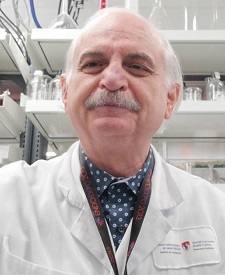 Constantin Polychronakos, MD, FRCPC, FRSC
Constantin Polychronakos, MD, FRCPC, FRSC
Pediatric endocrinologist, Professor, Department of Pediatrics, Cross-Appointment in Human Genetics
Director, Endocrine Genetics Laboratory
MUHC, Montreal Children’s Hospital
Dr. Constantin Polychronakos is a pediatric endocrinologist with interest in type 1 diabetes, at the Montreal Children’s Hospital, McGill University Health Centre. He is professor in the McGill Department of Pediatrics, and director of the Endocrine Genetics Laboratory at the MUHC Research institute. He has made seminal contributions to understanding how genetic variation affects diabetes. His ultimate aim is to contribute to precision medicine, towards adapting treatment to the patient’s genetic makeup.
 Ravi Retnakaran, MD, FRCPC, FCAHS
Ravi Retnakaran, MD, FRCPC, FCAHS
Clinician Scientist, Lunenfeld-Tannenbaum Research Institute
Professor, Department of Medicine, Division of Endocrinology and Metabolism, University of Toronto
Dr. Ravi Retnakaran is a Professor of Medicine at University of Toronto and an endocrinologist and clinician-scientist at Mount Sinai Hospital, where he holds the Boehringer Ingelheim Chair in Beta-cell Preservation, Function and Regeneration. He is a fellow of the Canadian Academy of Health Sciences. His research program focuses on the treatment of type 2 diabetes, with a particular interest in the potential reversibility and stabilization of the disease process early in the course of diabetes.
PANEL 3
 Tarik Möröy, PhD, FCAHS
Tarik Möröy, PhD, FCAHS
Director, Hematopoiesis and Cancer Research Unit, Montréal Clinical Research Institute (IRCM)
Full Research Professor, Department of Microbiology, Infectiology and Immunology, Université de Montréal
Dr. Tarik Möröy is the Director of the Hematopoiesis and Cancer Research Unit at the Montréal Clinical Research Institute/Institut de recherches cliniques de Montréal (IRCM). He is also a Full IRCM Research Professor, a Full Research Professor at the Université de Montréal and an Adjunct Professor at McGill University. Dr. Möröy has been a Tier 1 Canada Research Chair in Hematopoiesis and Immune Cell Differentiation since 2007 and was the President and Scientific Director of the IRCM from 2006 to 2019.
 Alexandra Ahmet, MD
Alexandra Ahmet, MD
Investigator, CHEO Research Institute
Associate Professor, Pediatric Endocrinologist and Program Director, University of Ottawa
Dr. Alexandra Ahmet is a pediatric endocrinologist at the Children’s Hospital of Eastern Ontario and an Associate Professor of pediatrics at the University of Ottawa. Dr. Ahmet’s research and advocacy focus has been both on adrenal suppression, a previously under-recognized side effect of glucocorticoid therapy and on the optimization of provision of care to patients with type 1 diabetes.
 Terra Arnason, MD, PhD, FRCPC
Terra Arnason, MD, PhD, FRCPC
Clinician Scientist, Full Professor, Division of Adult Endocrinology and Metabolism
Royal University Hospital
University of Saskatchewan
Dr. Terra Arnason is a clinical Endocrinologist and a molecular biochemist. Dr. Arnason’s research includes cell-based metabolic studies plus patient-focused efforts to improve diabetes outcomes. Her lab-bench research investigates cellular signals impacting the efficiency of metabolic adaptation between feasted (anabolic) and fasted (catabolic) states, which in-turn alters stress-responses and aging-pathways that are her focus. Secondly, clinical studies quantify improvements in self-care in Saskatchewan with patient access to continuous glucose monitoring and determine the clinical benefits of short-term intermittent fasting
 Jonathon Fowles, PhD, FCSEP, CEP
Jonathon Fowles, PhD, FCSEP, CEP
Director, Centre of Lifestyle Studies
Professor, School of Kinesiology, Acadia University
Nova Scotia Health Authority
Dr. Jonathon Fowles’ work has focused on the implementation of physical activity guidelines into practice. Dr. Fowles has spearheaded initiatives with many regional, national, and international organizations, including Nova Scotia Health Authority, Diabetes Canada and Exercise is Medicine, to increase physical activity counselling by health care providers and to improve the standards and use of exercise professionals to assist Canadians to be active. He has mobilized knowledge through research and education and developing innovative tools and resources.
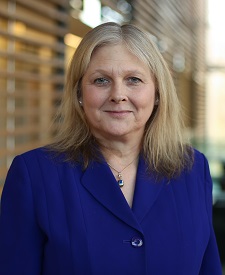 Robyn Houlden MD, FRCPC
Robyn Houlden MD, FRCPC
Professor and Chair, Division of Endocrinology, Queen’s University
Dr. Robyn Houlden is involved in healthcare research related to promoting best practice diabetes care, and innovative models of diabetes healthcare delivery. She has participated in diabetes guideline development for many years and chaired the 2018 Diabetes Canada guidelines for the prevention and management of diabetes in Canada. Dr. Houlden has also developed and assessed order sets meant to standardize the care of hospitalized patients with diabetes, as well as patients with diabetes during surgery. She is a strong supporter of multidisciplinary care and has assessed the impact of an interprofessional clinic aimed at optimizing blood glucose control prior to bariatric surgery. She is currently examining the impact of a nurse practitioner-run clinic for patients with diabetes without access to primary care.
 Baiju Shah, MD, PhD
Baiju Shah, MD, PhD
Associate professor, Department of Medicine, University of Toronto
Head, Division of Endocrinology, Sunnybrook Health Sciences Centre
Scientist, Sunnybrook Research Institute
Senior scientist, Institute for Clinical Evaluative Sciences
Dr. Baiju Shah is the division head of endocrinology at Sunnybrook Health Sciences Centre, an associate professor in the Department of Medicine at University of Toronto, and a senior scientist at ICES (formerly the Institute for Clinical Evaluative Sciences). He is a clinical epidemiologist and health services researcher. His research is focused on the quality of care and outcomes for people with diabetes.
PANEL 4
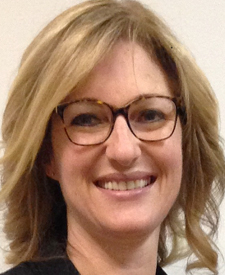 Tara Bingham
Tara Bingham
Board Director, Research Canada
Ms. Tara Bingham led federal government affairs at AstraZeneca Canada Inc., one of Canada’s leading biopharmaceutical companies. Bringing more than 10 years of experience to her role, Ms. Bingham drove the development and implementation of government affairs and advocacy strategies that aimed to influence and respond to public policy and external challenges that impacted market access and commercial priorities for AstraZeneca Canada Inc. and the biopharmaceutical industry. Before joining the biopharmaceutical industry, Ms. Bingham held a variety of senior positions within the federal government, cultivating her experience in legislative analysis, strategic communications and multi-dimensional project management.
 Sonia Butalia, MD
Sonia Butalia, MD
Scientific Director of the Diabetes, Obesity and Nutrition Strategic Clinical Network, Alberta Health Services
Assistant Professor of Medicine and Community Health Sciences, University of Calgary
Dr. Sonia Butalia is physician and researcher at the University of Calgary. Her research interests are in innovative tools and strategies to improve diabetes and other cardiovascular risk factors in the community. Her research program is importantly informed by patient partners, health care providers and decision makers. She is also the co-author of several national guidelines and textbooks in diabetes. She is also the Scientific Director of Alberta’s Diabetes, Obesity and Nutrition Strategic Clinical NetworkTM.
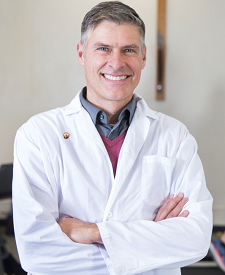 Michael Riddell, PhD
Michael Riddell, PhD
Full Professor, School of Kinesiology and Health Science and Muscle Health Research Centre, York University
Senior Scientist, LMC and Manna Research
Dr. Michael Riddell’s research uses several physiological techniques to study the effects of exercise, stress and low blood glucose on metabolism in various animal models of diabetes and the impact of exercise on blood sugar levels in adults and adolescents living with type 1 diabetes.
 Martin Sénéchal, PhD, CEP
Martin Sénéchal, PhD, CEP
Associate Professor, Faculty of Kinesiology, University of New Brunswick
Co-Director, Cardiometabolic Exercise & Lifestyle Laboratory
Dr. Martin Sénéchal is an Associate Professor in the Faculty of Kinesiology at the University of New Brunswick (UNB) and a Certified Exercise Physiologist from the Canadian Society for Exercise Physiology (CSEP-CEP). He is the Co-Director of the Cardiometabolic Exercise and Lifestyle Laboratory. Dr. Sénéchal’s research program focuses on increasing the efficacy of lifestyle intervention by limiting inter-individual variations and identifying predictors of intervention success for precision medicine in people at risk of diabetes.
 Katelyn Sushko, BScN, RN, PhD (c)
Katelyn Sushko, BScN, RN, PhD (c)
McMaster University
Katelyn Sushko is a second-year PhD student in the School of Nursing at McMaster University. Her research interests are related to improving perinatal outcomes among mothers with pre-existing type 1 and type 2 diabetes in pregnancy and their infants. Specifically, she is focused on understanding and developing strategies to provide education and support diabetes self-management in this population. In the future, she hopes to explore the use of technology interventions for this purpose.
 Diane Wherrett, MD, FRCPC
Diane Wherrett, MD, FRCPC
Professor, Division of Endocrinology, Department of Pediatrics
The Hospital for Sick Children and University of Toronto
Principal Investigator and Canadian Clinical Centre Director,Type 1 Diabetes TrialNet
Dr. Diane Wherrett’s research focus is in interventions to prevent beta cell loss in type 1 diabetes. She is a member of the Steering Committee of the NIH-sponsored multi-centre clinical trials group, Type 1 Diabetes TrialNet, chairs its largest study, Pathway To Prevention and is the director for the Canadian Clinical Centre for this study group. She was a member of the Expert Panel for the 2008, 2013 and 2018 Diabetes Canada Clinical Practice Guidelines.
Sponsored By
 Innovative Medicines Canada is the national voice of Canada’s innovative pharmaceutical industry. We advocate for policies that enable the discovery, development and commercialization of innovative medicines and vaccines that improve the lives of all Canadians. We support our members’ commitment to being valued partners in the Canadian healthcare system.
Innovative Medicines Canada is the national voice of Canada’s innovative pharmaceutical industry. We advocate for policies that enable the discovery, development and commercialization of innovative medicines and vaccines that improve the lives of all Canadians. We support our members’ commitment to being valued partners in the Canadian healthcare system.












